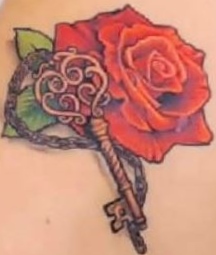Language
 |
Beauty & a key
to knowledge
|
What do we actually mean by the word dialect? Well, if you
hear someone say that a person speaks with a northern dialect,
they are not talking about dialect. One speaks with an accent, but
one might be said to speak a dialect.
The expression refers to a major subdivision of a
language, but even linguists (i.e. students of linguistics)
are not agreed on exactly how to use it.
Languages tend to vary somewhat over their geographical area and the
local varieties can be grouped into major subdivisions,
which are the geographical dialects. There is, however, a
complication. There are also social differences in speech, so that two
or more dialects may be spoken in the same area, especially in very
hierarchical societies in which there are barriers to social contact
between classes. For example, the Black English Vernacular (BEV) of the
United States is a series of dialects which have evolved independently
of the English used by the majority. Many black people know how to
"talk white", just as people in large areas of the British Isles can
speak Standard English when they need to, although they are more at
ease using a local variety of English.
This means that dialect maps tend to be markedly oversimplified,
generally ignoring social differences. Even so, things are not that
cut and dried. Linguists are often divided over where dialect
boundaries lie and whether a vernacular is a dialect of a particular
language or should be regarded as an independent language.
There is a further complication in that linguists are divided over
whether all major varieties of a language should be called dialects
or whether the word should be reserved for varieties other than
the principal form, often referred to as the standard language.
Purists claim that everyone speaks a dialect and the "standard
language" is just one which has acquired prestige. This has been
summed up in the words quoted by Max Weinreich: "A language is a
dialect with an army and navy."
These difficulties come together in the extraordinarily complicated
linguistic situation in the eastern part of Belgium, where Dutch fades
gradually into Central German in an area where Standard French and
the Walloon dialect are also used. The map on the next sub-page does not
deal adequately with this. Even the map in the Wikipedia article on the
dialects often known as
Low Dietsch
does not cover all the complications. The town of Eupen, which is
effectively the capital of the German-speaking community in Belgium,
lies west of the Benrath line and so uses a vernacular which is
technically not German, but should perhaps be treated as one of the
transitional dialects. The whole business is further complicated by the
fact that Limburgish, spoken in an adjacent area, is sometimes
regarded as a dialect of Dutch, sometimes as an independent
language.
So where do I stand on all this? Well, while I follow the
arguments of the purists, I take the pragmatic view that
the word dialect should be used for varieties
other than the principal form of a language. Moreover, I set the
bar high. In England most people use a modified Standard English.
Some speak with a regional accent, so use a phonetically modified
SE. It is more common for there to be morphological and syntactical
modification as well - morphology concerns the forms of words and
syntax the structure of phrases and sentences. However, I should describe
a variety of speech as a dialect only if it varies markedly from
the standard language phonetically, morphologically,
syntactically and lexically, that is to say, it must also have a considerable
amount of vocabulary which differs from the norm.
Consider the following phrase, sometimes used to illustrate the point:
-
Two children playing marbles in an alleyway.
This could be spoken as it stands, but with a regional accent. That would be a
phonetically modified Standard English. However, it is more likely that there
would be some morphological and syntactical modifications as well, for example:
-
Two childer playing at marbles up an alleyway.
This would still be a modified Standard English, but imagine that there were
marked lexical differences too, for example:
-
Twa bains laiking at taws up a ginnel.
Now that's what I call dialect!